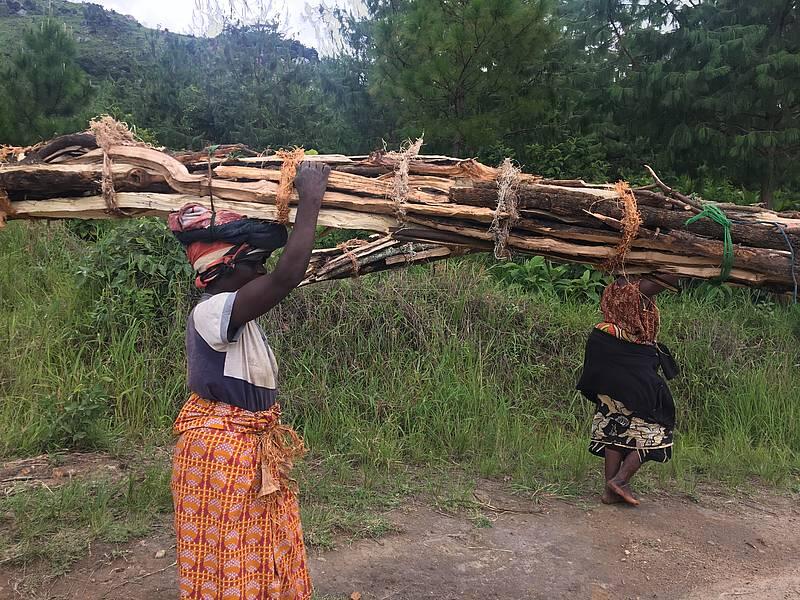Global report: Forests underrated as allies to curb rural poverty

URBANA, Ill. – Poverty is one of the greatest challenges facing humanity. Globally, one in 10 people lives on less than $1.90 per day. If current trends continue, the World Food Programme predicts the number of hungry people will reach 840 million, or one ninth of the world’s population, by 2030.
Poverty eradication has therefore found a place at the top of the United Nations 2030 Agenda for Sustainable Development. “End poverty in all its forms everywhere” is the first Goal of this Agenda, which is supported by all 193 UN member states. The international community is now stepping up efforts to achieve this goal, especially in response to the severe setback caused by the COVID-19 pandemic. The zoonotic nature of the COVID-19 virus has also illustrated the urgency to reduce human pressure on nature.
One way to relieve this pressure and alleviate poverty is to recognize and further optimize the critical role of forests and trees as allies in the fight against poverty. In the long run, losing forests means losing this fight. This is the central finding of a new global assessment report entitled, “Forests, Trees and the Eradication of Poverty: Potential and Limitations.” The report is the product of a two-year investigation by a global panel of experts, chaired by associate professor Daniel C. Miller of the Department of Natural Resources and Environmental Sciences at the University of Illinois at Urbana-Champaign.
Miller says, “Forests and trees are critical to the well-being of many of the world’s poor people who have been able to harness the goods and services they provide to manage risk, especially in the face of crises. To secure and improve this important function, we need to adequately protect, manage and restore forests and to make forests and trees more central in policy decision-making.”
The study consolidates available scientific evidence on the wide range of contributions forests and trees make to curbing poverty and on the effectiveness of diverse forest management policies, programs, technologies, and strategies. It does so based on an understanding of poverty not only in terms of money, but also as an obstacle that keeps people from attaining a certain level of well-being and participating fully in society.
“This global assessment comes at a critical time. More extreme weather events associated with climate change, widening inequality, and the spread of infectious diseases, among others, are making an already insecure situation worse for the poor. It is therefore essential to review the role of forests in development in general, and in achieving poverty eradication, in particular,” says Hiroto Mitsugi, Assistant Director-General, FAO, and Chair of the Collaborative Partnership on Forests.
The report concludes forests and trees can substantially improve human well-being and curb global poverty, although these benefits are unevenly distributed. In many forest and wildlife-rich countries in Africa, for example, timber and tourism are major contributors to national economic accounts, but the benefits may not accrue at the local level and, worse, local communities may bear the cost of these activities through environmental degradation and restricted access to protected areas.
The panel also finds forests and trees specifically contribute to the well-being of the poor as they face profound global changes, such as climate change and the spread of infectious diseases, including COVID-19. Forests and trees provide the most vulnerable with access to goods and services, helping the poor to cope with uncertainty and even move out of poverty.
However, inadequate land use policies and programs place an unequal burden on the poor, prompting the panel to recommend tailored policy to fit specific contexts.
“Our global assessment examines a variety of policy and management measures implemented by governments, civil society organizations, and the private sector for their potential and limitations to alleviate poverty. While there is no one-size-fits-all solution, we have found that some of the strongest evidence for poverty reduction comes from agroforestry systems, community forest management, ecotourism, and forest producer organisations, among others,” Miller says.
The report launched online October 15, two days ahead of the International Day for the Eradication of Poverty, one day ahead of World Food Day, and on the International Day of Rural Women. All these official days underscore the urgent need for action.
The Global Forest Experts Panel (GFEP) on Forests and Poverty, led by the International Union of Forest Research Organizations (IUFRO), is an initiative of the Collaborative Partnership on Forests (CPF) chaired by the Food and Agriculture Organization (FAO) of the United Nations.